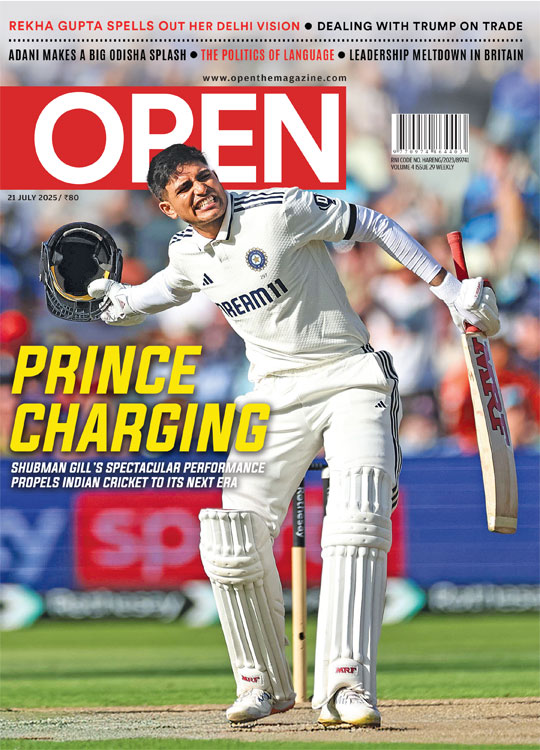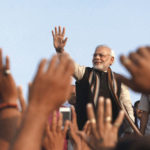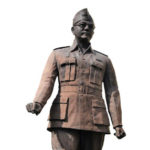CURSE OF THE GAME
Cricket and Pakistan: When military dictators and politicians thought they could win the people through a surrogate triumph on a playing field
/wp-content/uploads/2015/11/Open-essay-Obrone.jpg)
Cricket and Pakistan: When military dictators and politicians thought they could win the people through a surrogate triumph on a playing field
Nazar Mohammad was the first Pakistani cricketer to score a Test century, in 1952 at Lucknow, but his brilliant promise was aborted by an arm injury in 1953. This could have been a heroic tale in the annals of cricket, if perhaps Nazar had been felled by a fearsome fast bowler like West Indian Hall or Griffith. Alas, the incident is merely tragi-comic, the stuff of tired cartoons rather than epic poetry. Nazar broke his arm when he jumped out of his paramour’s first floor bedroom window to escape the wrath of a jealous husband.
This exciting story appears in a footnote on page 24 of Peter Oborne’s devoted history of Pakistan cricket, Wounded Tiger (Simon & Schuster UK, 608 pages), and is reason for a complaint. Peter should have done a switch: turned his fabulous footnotes into treasure house chapters and shaved off a few stubbles in the body copy. But Peter, who ponders often in this fine book without becoming ponderous, has become an attorney instead of a historian. Since he cannot quite ignore anecdotes that have done so much to enliven the reputation of Pakistan’s once-happy band of cricketers, he places scintillating stuff at the mercy of asterisks in small type. As the greatest of Pak legends, Imran Khan, once proudly announced on his T-shirt during a trip to Australia, ‘Big Boys Play at Night’.
I know Peter Oborne, and while one cannot quite claim him as a close friend, he is certainly a luncheon companion during my infrequent visits to London if he is not trotting across distant corners of the globe in search of a story. Peter’s bread comes from political reporting and columns; the butter is from excellent books like Alastair Campbell: New Labour and the Rise of the Media Class, The Rise of Political Lying, The Triumph of the Political Class and Basil D’Oliveira, Cricket and Conspiracy: The Untold Story. In Wounded Tiger Peter indulges his twin passions, politics and cricket. I wonder if he realised that expertise acquired in political commentary would work so seamlessly in Wounded Tiger: conspiracy, power politics, shifting class and cash relationships, intrusive media and nuanced lying by so many with a cause or career to promote through sport.
So much of Pak cricket is about different games, ruled by politicians and military dictators who thought they could win the affection of subjects through a surrogate triumph on a playing field. As hockey faded, cricket took over in both India and Pakistan, but Indian cricket reinvented itself through brilliant entrepreneurship, which has created a template for the world. Since money keeps an open-door policy for talent, there will be plenty of both in India during the foreseeable future. Pak cricketers, sadly, have not found an economy that can pay for their abilities or meet their aspirations. Too many of them, therefore, have been mesmerised by an alternative sub-plot, illegal betting. Throw in terrorism and ethnic violence, and Pakistan cricket has become a refugee searching for temporary habitation where it can play a Test series. If it were not real, it would be too weird to contemplate. This is no fault of the cricketers.
They are simply young men trapped in the wrong place at the wrong time.
Peter is accurate enough about his wounded tigers, but he seems almost reluctant to note that these wounds are self- inflicted. This is understandable. He is in love with his subject (at least until the next infatuation and another book come along), and every lover manages to convince himself that the hairy wart on the beloved’s moon-face is actually a pretty little mole planted by an angel from Heaven’s beauty parlour.
Investigative rigour, consequently, disappears even on so important a problem as the various forms of corruption: spot-fixing, match-fixing, umpire-fixing, and even organiser-fixing in at least one infamous arid venue. Peter may have every humane reason to be kind to the young Mohammad Amir who, along with Salman Butt and Mohammad Asif, was caught spot-fixing, and pillory him for naiveté rather than condemn him for crime; but why does he abandon basic journalist demands when it comes to men at the centre of this fix, the bookies? He refers, for instance, to ‘a bookmaker named Ali, who tried to induce him [Amir] to cheat’. Any newspaper editor would have placed queries on the side: ‘Surname? Details? Where does Ali operate from?’ Et al. Ali was no stranger to the players; they would have talked. But Oborne is reluctant to add flesh to bare bones.
In 1979, Pakistan captain Majid Khan voiced alarm when a ‘big fat chap’ sat regularly on the team bus, despite being a stranger. What is even more strange is that the fat chap remained on the bus. The captain never ordered him off. Would such an order have led to a revolt in the team?
Oborne does not provide the name of this big fat chap when dozens would have disclosed his identity. He simply does not ask. Nor does he disclose the name of the bookie who greeted the Pakistan team at Delhi airport and then shadowed the team in an expensive BMW—a pretty rare car in those days on the Subcontinent, and as sure a sign of flashy wealth as any.
Peter is in a hurry to run past discomfiture, although, to his credit, he never whitewashes dirt from the narrative. But he does fall into that old trap of seeking justification in equivalence. He fingers Asif Iqbal, who once told his surprised Indian counterpart G Viswanath that the latter had won the toss. Peter adds, ‘Besides it was openly alleged that Asif Iqbal had joined hands with the top Indian speculators and gamblers, and that some of his team-mates were found too weak to resist similar sort of temptation’. So that’s all right then. Pakistanis can never do anything wrong without having Indians to blame.
It is perfectly true that Indian captain Mohammad Azharuddin and South African Hansie Cronje’s careers were ruined by similar scandals (Cronje died a broken man and Azharuddin became a Congress MP). But South Africa and India never suffered the epidemic-level infection that wasted Pakistan’s superb cricket talent. Note this incident from a New Zealand tour, where Salim Malik ‘claimed to have won the toss in the first Test after making a call in Urdu. He then picked up the coin before the home captain, Ken Rutherford, had a chance to look at it, or ask for a translation’. That touch of Urdu is pure genius. You can’t be a good crook without brains.
Only a thin crust of corruption has become public knowledge. As Imran Khan once pointed out, it takes collusion between five to seven players to fix a game. Even matches against sworn rivals India in the 1996 World Cup were not above suspicion. I quote: ‘A rumour circulated [at Lahore’s Gaddafi stadium] that Wasim’s injury was spurious and that he had taken money from bookies to miss the match against India.
‘He was forced into hiding as his effigy was burned and his home in Lahore was pelted with garbage by an angry mob. Wasim [Akram] denied the rumour at the Qayyum Commission, which acquitted him.’ Memory has not acquitted Wasim, which is why this ghost flutters into the book.
Honest members of the Pakistani squad knew what was going on. In 1994, manager Intikhab Alam made his players swear on the holy Quran, but neither flag nor God could keep everyone clean. Surely the most interesting Test of that time would have been South Africa versus Pakistan in 1994, the former led by Cronje and the latter by Malik. Which captain made more money on the side? The joke that year was Pakistan’s loss to Zimbabwe by an innings and 64 runs. Jackie Hendricks, the match referee, refused to accept Malik’s claim that he had won the toss, and ordered a second flip of the coin. This time Zimbabwe won the toss.
There is similar eagerness to save Pakistan’s reputation on that other massive bone of contention: umpires who got a stye in the eye at crucial moments of a match. Once upon a time, long, long ago, there was no television coverage, and nothing in the form of camera and computer-generated gymnastics that indicate where a ball would have travelled up to next Sunday. An umpire was God. Run-outs and leg-befores were the happy hunting ground of patriotism. Cooking up an elaborate defence, Peter makes an indigestive meal out of statistics, pointing out with slapdash enthusiasm that Pakistani umpires declared as many of their own players run out or lbw as they did Indians.
Anyone with an ounce of cricket in his brain [and Peter has tonnes of it] knows that it is not quite the same thing giving Sunil Gavaskar out as sending Waqar Younis back to the dressing room when it doesn’t matter.
Umpiring has caused such bad blood that it even infected the great ‘goodwill series’ of 1978 between India and Pakistan, when play resumed after 17 years. The bonhomie, the graciousness of guest and host, the nostalgia, were exemplary. A fancy Mercedes was sent to the airport for that great son of Lahore Lala Amarnath when he went as a commentator. The manager of the Indian team, Maharaja of Baroda Fatehsinghrao Gaekwad, thought the limousine was for him, and was politely told to get into the team bus (Since you ask, the Maharaja’s full name was Lieutenant Colonel Farzand-i-Daulat-Inglishia Shrimant Maharaja Fatehsinghrao Prataprao Gaekwad, Sena Khas Khel Shamsher Bahadur). But even this happy chapter ended on a bitter note when Indian captain Bishen Singh Bedi walked off the field in the third one-dayer because Sarfraz Nawaz kept bowling bouncers beyond the reach of Indian batsmen without being called by Pakistani umpires.
In 1987 Tom Graveney said that Pakistan have been “cheating for 37 years and it is getting worse and worse”. That might have been an exaggeration but indicates the simmering bitterness of all visitors.
Ian Botham spoke for the tribe when he suggested that Pakistan was just the place to send your mother-in-law to (History does not record what Botham’s mother-in-law had to say on the subject). Pakistanis themselves clearly had more fun when they were out of the fatherland.
In 1993, Wasim and three colleagues were caught in the West Indies by the police for possession of marijuana in the company of two British girls. More details, please, Peter, in the next edition.
It is to Imran Khan’s eternal credit that he recognised the damage to his country’s reputation, and led a long campaign for neutral umpires. Imran Khan was the most honourable and honoured player in Pakistan’s history, a class apart—literally. When Imran’s father Ikramullah Khan Niazi returned in 1948 after doing a post-graduate course at Imperial College, half the town came to greet the ‘England returned’ at the railway station. Imran decided his future lay in cricket after he saw his cousin Javed Burki (also Oxbridge) score a century. By the time Imran joined the Lahore cricket team in 1968, the class character of Pakistani cricketers had already begun to change; he could barely communicate (as he notes in his autobiography) with some of his teammates, who were from largely Urdu-medium schools.
You cannot ring-fence a game synonymous with such glamour. Imran evolved to absorb elements from both worlds he bridged, one of agnostic blue-blood West-oriented privilege and the other of values derived from his religion. He claims he was jolted by culture shock when he went up to Oxford in 1972 and encountered the anarchic, subversive, iconoclastic humour of Monty Python on BBC. Imran completely trusted a clairvoyant named Mian Bashir, who predicted his future and told his wife Jemima, who came from a more cynical London elite, the three things she most wanted from life.
As an Indian who witnessed the emotional upheavals around the 1978 Karachi Test, as well as the delirious 2004 Lahore one- dayer, I wish there had been a little more about the complex interweave of sports, politics, culture and memory on the Subcontinent. But that does not detract too much from a magisterial labour of love. My own encounter with cricket history came when a ragbag collection of Indian journalists were pitted against a local media side for an impromptu match on the rest day of the Karachi Test in 1978. To our shock and awe, the legendary Hanif Mohammad came to bat for the hosts. I was hiding somewhere on the field when a Hanif on-drive came straight towards me. With superb, youthful agility I jumped smartly to the side and let the ball carry on for a boundary rather than crack a finger trying to stop Hanif’s drive.
There was applause from my fellow Indian hacks on the field, not all of it ironic.
About The Author
CURRENT ISSUE
MOst Popular
3

/wp-content/uploads/2025/07/Cover-Shubman-Gill-1.jpg)













More Columns
Nimisha Priya’s Fate Hangs In Balance, As Govt Admits It Can’t Do Much Open
Roots of the Raga Abhilasha Ojha
An Erotic Novel Spotlights Perimenopause Nandini Nair